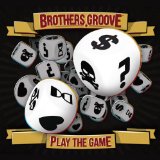 How about that? Less than a month into 2014 and I’ve just heard my first great album of the year; it’s by Brothers Groove, it’s their debut and it’s called “Play the Game”. So what’s so great about this album then? All of the songs are well-crafted, but the quality of the playing and the vocals push it way beyond run-of-the-mill British blues. If you want to see how the band describe their influences, you can look at their website, but it’s only going to tell you part of the story; you can list the influences (and you can hear them from the first play), but the craft lies in the way those elements are blended together subtly and tastefully.
How about that? Less than a month into 2014 and I’ve just heard my first great album of the year; it’s by Brothers Groove, it’s their debut and it’s called “Play the Game”. So what’s so great about this album then? All of the songs are well-crafted, but the quality of the playing and the vocals push it way beyond run-of-the-mill British blues. If you want to see how the band describe their influences, you can look at their website, but it’s only going to tell you part of the story; you can list the influences (and you can hear them from the first play), but the craft lies in the way those elements are blended together subtly and tastefully.
The beating heart of Brothers Groove is the interplay between Shaun Hill (guitar, vocals and main lyricist), Nigel Mellor (guitar and vocals) and Deano (bass and vocals). On this album, they’re helped out by Wayne Proctor (drums and production), Bob Fridzema (keyboards), Bennett Holland (piano) and Sam Weeks (backing vocals), but the creative focus of the band is definitely the interplay between guitars and bass.
The band move effortlessly between the crisp funk of “Play the Game (Save your Soul)”, “What’s the Deal” and “Understand Me” (which wouldn’t sound out of place on either of Donald Fagen’s first two solo albums) and the slow, brooding blues of “Treat ‘em Mean”, “Another Girl” and “Will I See you There?” And there’s the jazz-funk of “My Guitar” (a love song about a guitar), the psychedelic feel of “Never Gonna Happen”, the shuffle groove of “Duty Calls” and the soulful “Easy Found Love”, held together by some tasteful Hammond chords and featuring a typically understated wah-wah guitar solo.
This is an album that doesn’t rely on big production techniques or guitar pyrotechnics to get the message over; it’s all about superb technical playing where the two guitars mesh perfectly in a way I haven’t heard since listening to Onnie McIntyre and Hamish Stuart of the Average White Band. The resemblance doesn’t end there, either; the lead vocal sounds uncannily like Alan Gorrie at times and I’m definitely not saying that’s a bad thing. Brothers Groove as players are so good that they make intricate inter-woven arrangements sound incredibly simple; they aren’t, it’s down to ability and dedication. They have the confidence to play without pushing everything to the limit; the quality of the songs and the individual players’ techniques ensure that nothing sounds forced, from the opening guitar riff of the title track to ripple of Fender Rhodes at the end of “Will I see you there?”. To complete the picture, lead and backing vocals are spot on throughout; I can’t find anything to dislike about this album.
The members of the band have obvious influences, but these are woven into the pattern so cleverly that they create something that’s fresh and contemporary. Imagine Steely Dan without the snarky sarcasm or the Average White band without the horns and you’re pretty much there.
Out now on Shabby Toad Records (BRGROOV1). Distributed by Cadiz Digital.
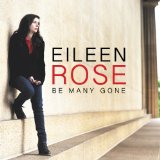 This made-in-Nashville, contemporary country album is full of sweet surprises, the sometimes quirky arrangements, the lyrics, the instruments… It has different moods and tempos and Eileen Rose makes you want to listen to her latest offering, she speaks clearly to her audience, one to one. She’s no newcomer either; a few albums in and plenty of touring and festivals to support them, this is an accomplished and confident sounding album.
This made-in-Nashville, contemporary country album is full of sweet surprises, the sometimes quirky arrangements, the lyrics, the instruments… It has different moods and tempos and Eileen Rose makes you want to listen to her latest offering, she speaks clearly to her audience, one to one. She’s no newcomer either; a few albums in and plenty of touring and festivals to support them, this is an accomplished and confident sounding album.
She started writing at 14, trying to emulate her idol, Kate Bush, but was listening to an eclectic diet of music from Bowie to Linda Rondstadt. Eileen Rose has both American and Irish heritage and her first gigs were around Boston when she was playing mainly folk music. Since then she has also lived in urban Essex and gigged in London for a stint, when she also released two CDs for Rough Trade. She has toured the UK and US with such reputable company as Ryan Adams and Beth Orton, before expanding her growing fan base to Europe. There are many hints on this album, that there is more to her than country as the Jive-paced, “Just Ain’t So” prove and the sultry “She’s Yours”, with fiddle and brushed drums, a well placed accordion also lends a European touch to some tracks.
“Be Many Gone” opens with a bouncy “Queen of the Fake Smile”, complete with lively fiddle. The mood then shifts to a slower pace including the bittersweet, “She’s Yours” and stand-out “Prove Me Wrong”. “Each Passing Hour” features Frank Black as a duet, which doesn’t work so well for me but sonically it rolls nicely with castanets and Mexican sounding trumpet. Eileen Rose plays guitar and taught herself piano, but she also picks up other instruments (including bongos) and is just setting up her own label Holy Wreckords with her collaborator and producer, mixer and engineer of “Be Many Gone”, Rich Gilbert, so it appears that Eileen Rose is experiencing a period of enormous creative growth.
This is an emotionally wrought set of songs where she wears her heart visibly, but in no way is it depressing; Eileen Rose clearly also has a sense of humour, “I can be a good friend, I can be a joker, but you can choke me up now baby with a single glance” (“Comfort Me”). Not that she comes from the old Patsy Cline school of victim lyricism, she clearly empowers herself and shares this, while retaining a capacity for vulnerability and intimacy. Vocally Eileen Rose has a country voice pitched somewhere between Kirsty MacColl and Lucinda Williams, while she doesn’t stretch her voice much on this album, the comfort in her voice contrasts nicely with the sometimes uncomfortable lyrics. If you like country music with European and folky twists, this is definitely an album to check out. Eileen Rose is currently considering playing dates in the UK and if past accolades are anything to go by, it will be a hot ticket!
“Be Many Gone” is out now on Holy Wreckords HWER12714.
Klare rated this album at 3.5 stars, but we can only rate in full stars, so this is 4 stars because I think it’s a great album as well (Ed.)
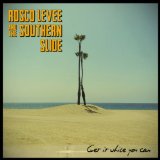 I’ve been hearing a lot about Rosco Levee over the last six months, so I was pretty chuffed when this review copy arrived a few weeks ago. “Get it while you can” is the second album from Rosco Levee and the Southern Slide, following 2012’s “Final Approach to Home”. Coming straight out of the heart of the Medway Delta, Rosco, with Andy Hayes (guitars), David Tettmar (drums), Simon Gardiner (bass) and Lee Wilson (keyboards) play a joyous blend of blues, rock and country with a healthy dose of 1970s southern American rock, but more about that later.
I’ve been hearing a lot about Rosco Levee over the last six months, so I was pretty chuffed when this review copy arrived a few weeks ago. “Get it while you can” is the second album from Rosco Levee and the Southern Slide, following 2012’s “Final Approach to Home”. Coming straight out of the heart of the Medway Delta, Rosco, with Andy Hayes (guitars), David Tettmar (drums), Simon Gardiner (bass) and Lee Wilson (keyboards) play a joyous blend of blues, rock and country with a healthy dose of 1970s southern American rock, but more about that later.
If you want great blues and blues/rock guitar players we seem to have dozens of them at the moment (here and across the pond) but, personally, I’m really fed up of hearing about the new Clapton, the keeper of the faith and the guardian of the flame. There’s no denying that Rosco Levee is influenced by the Allman Brothers and the Rolling Stones (and a few more), but there’s such variety on this album that it stands way above the work of the purists and the one-trick ponies. More importantly, it sounds like the musicians are having a great time.
Before getting really stuck in to this one, I have to say that, on the first listen, I wasn’t too keen on Rosco’s vocals; maybe it was too early in the day. There’s a lesson here; never review anything that you’ve only listened to once because you’ve almost certainly missed something. After a few more plays, the lead vocals became original and distinctive with a hint of Freddie Mercury on early Queen albums or perhaps Squeeze singer Glenn Tilbrook.
So the album starts the way great albums do, with a statement of intent in the blistering “Some Angels Fall”, which throws in everything from a big dirty guitar intro to a huge chorus with a horn section and a couple of kitchen sinks thrown in for good measure. The next two songs are similarly uptempo, the shuffle beat, keyboard-driven “Gambling Man” followed by “Howitzer Eyes”, powered by a bass riff and twin lead guitars before the first hint of a change of tempo.
The next three songs feature Rosco’s acoustic guitar work, “Back to the Banks” adds a bit of piano and has a strong feel of the Stones’ “You Can’t Always get what you want”, “Whiskey Blues Goodnight” starts with acoustic slide and builds into a blues stomper while “My Gospel” has a strong feel of Rory Gallagher’s acoustic sets; the structure of the song’s very simple and it relies on great guitar and vocal performances.
“When the Band Starts to Play” is a slow blues with an impassioned vocal building up to a huge finish with loads of backing vocals, while “I Got my Own Plan” is pure swamp rock. The final three songs, “Redemption Calls”, “Look Out Moses” and “Southern Belle” run through country, spaghetti western themes, Mexican brass arrangements, call and response, tempo changes and varied dynamics.
This album quite clearly displays its influences, but it never feels derivative. The arrangements are hugely varied, from vocal and acoustic guitar to full band with keyboards and horn section, and it all works. It was even recorded direct to analogue tape in the studio by a bunch of people who just want to make great music. So what’s not to like?
Released January 27 2014 on Red Train Records UK (Cat 427002).
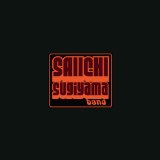 As you can see from the star rating at the top of the page, I have some problems with this album. The problems aren’t with the quality of the performances because, predictably, those are all very good, particularly Saiichi Sugiyama and the singer Rietta Austin, who are both superb throughout. The problems I have are about why the album was ever released, and if it’s actually an album in any real sense. It’s only seven songs long and four of those songs have appeared (in different versions) on earlier studio albums, while the remaining three are third-generation (at least) covers of blues standards.
As you can see from the star rating at the top of the page, I have some problems with this album. The problems aren’t with the quality of the performances because, predictably, those are all very good, particularly Saiichi Sugiyama and the singer Rietta Austin, who are both superb throughout. The problems I have are about why the album was ever released, and if it’s actually an album in any real sense. It’s only seven songs long and four of those songs have appeared (in different versions) on earlier studio albums, while the remaining three are third-generation (at least) covers of blues standards.
The story behind the album is that “The Smokehouse Sessions” started out as a demo video project which was recorded live in the studio. I’m totally supportive of bands who rehearse a full album’s worth of material before recording live; it brings an immediacy that it’s difficult to replicate with multi-track techniques (although I might make an exception for Henrik Freischlader). That wasn’t what happened here; someone listened to the final mixes of the project and decided that this was worthy of release as an album.
I’ve tried listening to this on a couple of reasonably decent audio systems and I still have to say that the rhythm section sounds really murky. To make the problem even worse, this is most noticeable on “Somewhere down the Road”, the first track on the album; it’s really difficult to recover from that kind of start. I appreciate that, in the current situation in the music industry, it’s crucial to make the most of every opportunity, but I really don’t believe this deserves to be a full album release. As I said earlier, this is no criticism of the performances, particularly those of Saiichi Sugiyama and Rietta Austin. If these seven tracks were released as part of a limited edition disc, it might be justifiable, but this just isn’t on.
If you want to really appreciate Saiichi Sugiyama, then listen to the studio albums, “Saiichi Sugiyama”, “So Am I” or “Saiichi”. Even better, you could go along to a live show and see what he can really do. This might be one for the committed or the late 60s/early 70s blues revivalists, but I don’t think it’s going to win any new fans.
Release date 27/01/14 on Cedar Mountain Music (CMM 25-5762).
 We asked one of our favourite singer-songwriters, Dean Owens, what he was looking forward to hearing (or reading or seeing) in 2014, and he came up with some very interesting recommendations for us. Dean’s comments are in bold type.
We asked one of our favourite singer-songwriters, Dean Owens, what he was looking forward to hearing (or reading or seeing) in 2014, and he came up with some very interesting recommendations for us. Dean’s comments are in bold type.
First on the list was the new Joel and Ethan Coen film, “Inside Llewyn Davies”. It’s the story of a folk singer trying to get a break in the Greenwich Village folk scene in 1961 and features contributions from the Coens’ long-term collaborator, T-Bone Burnett and also Marcus Mumford. As Dean says: I love the period in New York history it’s set in and I like pretty much like everything the Coen Brothers have done.
Next up was the new novel, “The Free”, by author (and singer and songwriter with alt-country band, Richmond Fontaine), Willy Vlautin. This, his fourth novel, is the story of the intersecting lives of three people looking for meaning in difficult social circumstances. Over to you, Dean: The new Willy Vlautin book should be good. He’s a great writer. I’m guessing there may be a new Richmond Fontaine album on the horizon too.
Very curious to hear the lost Johnny Cash album, “Out among the Stars”. Should be some gems on that.” The twelve tracks on the album were recorded in 1981 and 1984 and have been in the Columbia vaults ever since; they aren’t demos out-takes or alternative versions, they’re the real deal and they include duets with June Carter Cash. They were uncovered by Legacy Recordings and John Carter Cash.
I’m very much looking forward to seeing the first album I’ve produced for another artist being released; it’s by Ags Connolly, it’s called “How About Now” and it’s out in February on Drumfire Records. In November, we reviewed a great gig by Dean and Ags and we’ll be reviewing the album as soon as I can get my hands on a copy.
Deer Lake (who I sing with) should be releasing our debut album this year. I’m excited about that. We’ll also be doing a lot more live work this year. Dean’s been singing with Deer Lake for some time now, alongside former Annie Christian frontman, Larry Lean and the album will be out some this year. We’ll keep you posted.
I’ve got a few solo projects up my sleeve this year. Be great to get a new record out and do some touring. So, it looks like Dean’s got a pretty busy year ahead of him in 2014, both solo and with Deer Lake. We’ll be trying to keep up with him.
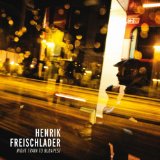 You certainly can’t accuse Henrik Freischlader of taking time out in 2013. After the release of the superb “House in the Woods” in September 2012, he took his band on tour over the winter to support the album. When that tour finished he went to live in the studio for a few months to produce his four-CD live album, play virtually all the instruments on, and produce Layla Zoe’s album “The Lily”. After that, he went on to record this album, “Night Train to Budapest” which was released in December 2013; he did some shows to promote this album as well. Henrik is self-taught and plays guitar, bass, drums and organ; he also has a great blues/soul voice and writes powerful songs in a second language.
You certainly can’t accuse Henrik Freischlader of taking time out in 2013. After the release of the superb “House in the Woods” in September 2012, he took his band on tour over the winter to support the album. When that tour finished he went to live in the studio for a few months to produce his four-CD live album, play virtually all the instruments on, and produce Layla Zoe’s album “The Lily”. After that, he went on to record this album, “Night Train to Budapest” which was released in December 2013; he did some shows to promote this album as well. Henrik is self-taught and plays guitar, bass, drums and organ; he also has a great blues/soul voice and writes powerful songs in a second language.
Following the “live band” approach he adopted for his previous studio album, “House in the Woods”, Henrik has reverted to his favoured studio approach with “Night Train to Budapest”, playing all the parts himself with the exception of keyboards which are played by his live collaborator Moritz Fuhrhop. The album begins in the way you would expect, with “Point of View”’s blistering riff and powerhouse solo before shifting through a wide variety of blues-rock stylings and even a ballad, the acoustic-led “Caroline”, which would sound at home on a 70s American west coast album, although it really didn’t need the trucker’s gear change for the last chorus.
There are a few funky blues tunes, “Gimme All you Got” and “A Better Man” (which has more than a touch of Ike and Tina’s “Nutbush City Limits”), the mid-tempo riff-driven “Down the Road”, “Everything is Gone” and “Shame” and the reggae-tingedf “If This Ain’t Love” with its clean chords and over-driven lead guitar.
There are a couple of slow blues songs which demonstrate the control and finesse of Henrik’s vocals and playing. “Thinking About You” is a relationship breakdown song with washes of controlled feedback as the song builds to a climax, while “My Woman” is very slow with a minimal arrangement held together by Moritz Fuhrhop’s Hammond chords, leaving plenty of space to emphasise Henrik’s powerful, clean guitar work. The album closes with the slow, brooding (almost one-chord) menace of “Your Loving was so Good” after just over an hour and eleven very good songs.
It’s a very good album, but that’s what you would expect from a Henrik Freischlader studio effort. His songwriting seems to be taking a more introspective direction over the last two studio albums, with an increased emphasis on loss and loneliness in the lyrics, but it is the blues after all. If you like blues and blues/rock, then I’m pretty certain you’ll like this. If you don’t like those styles, it’s still worth a listen because of the quality of the performances and the songwriting.
Out now on Cable Car Records (CCR 0311-42).
![Four[1]](http://musicriot.co.uk/wp-content/uploads/2014/01/Four1-e1390221172647.jpg) Ok, here’s one that we missed in the pre-Christmas rush but we got there eventually. The Exploding Boy is a darkwave alt-indie band from Stockholm which takes its name from a Cure song and the members are Stefan (vocals/electric guitar), Johan (vocals/acoustic guitar), Nick (keyboards) and Les (lead guitar). Just a quick look at the titles on the album, “Four”, tells you all you need to know about the mood and lyrical content (“Going to Hell”, “Dark City Pt.II”, “Shadows”, “Awful” and “Scared to Death”) but there’s a lot more to it than that. The band takes a lot of inspiration from the late 70s/early 80s post-punk era, with some later Goth elements thrown in. The opening song, “Cracked/Reasons”, sets the tone for the rest of the album with an over-driven guitar riff, huge drums and thunderous bass with some keyboard to add texture. To counteract the dark arrangements and lyrics, however, there are some great melodies, particularly in the choruses.
Ok, here’s one that we missed in the pre-Christmas rush but we got there eventually. The Exploding Boy is a darkwave alt-indie band from Stockholm which takes its name from a Cure song and the members are Stefan (vocals/electric guitar), Johan (vocals/acoustic guitar), Nick (keyboards) and Les (lead guitar). Just a quick look at the titles on the album, “Four”, tells you all you need to know about the mood and lyrical content (“Going to Hell”, “Dark City Pt.II”, “Shadows”, “Awful” and “Scared to Death”) but there’s a lot more to it than that. The band takes a lot of inspiration from the late 70s/early 80s post-punk era, with some later Goth elements thrown in. The opening song, “Cracked/Reasons”, sets the tone for the rest of the album with an over-driven guitar riff, huge drums and thunderous bass with some keyboard to add texture. To counteract the dark arrangements and lyrics, however, there are some great melodies, particularly in the choruses.
Most of the influences seem to come from the period when post-punk was at its darkest; you can hear elements of Joy Division, Psychedelic Furs, B Movie and possibly even “White Wedding”-era Billy Idol. The way the keyboards are used reflects this, adding to the overall textures rather than featuring as lead instruments as they did when post-punk morphed into the New Romantic movement.
There’s plenty to like on “Four”; the arrangements are exciting and there’s plenty of contrast between the strong melodies and the dark lyrics dealing with death, darkness and alienation throughout the album. Overall, the album works for me, with a couple of reservations. A couple of songs feel a little raw with arrangements which seem to fall apart rather than finish and some of the lead vocals are a little strained at times. “Four” isn’t perfect, but it’s full of great ideas. Crank it up to 11 and enjoy it.
Out now on Artoffact Records/Drakkar/Sony.
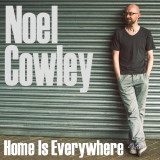 Well, it’s not even halfway through January yet and this is the second very, very good single I’ve reviewed. Noel Cowley is a singer-songwriter with roots in Derry, Dublin and London and the songs and arrangements on this EP are in a tradition that extends back to the highpoint of the genre in the 70s. Noel recorded these songs (co-written with his brother Ewan, who also plays piano and guitar) in Manchester with some help from Paul Burgess (10CC) on drums and Tracey Browne on backing vocals.
Well, it’s not even halfway through January yet and this is the second very, very good single I’ve reviewed. Noel Cowley is a singer-songwriter with roots in Derry, Dublin and London and the songs and arrangements on this EP are in a tradition that extends back to the highpoint of the genre in the 70s. Noel recorded these songs (co-written with his brother Ewan, who also plays piano and guitar) in Manchester with some help from Paul Burgess (10CC) on drums and Tracey Browne on backing vocals.
The songs on this EP are moving and introspective, from the opener “If Nobody Told You” with its positive advice to be yourself set against a band arrangement with strings, to the closing song “Station Road” with its sparse acoustic guitar arrangement and Van Morrison-like childhood reminiscences. The two central songs, “Wherever I Go” and “Sunday on the Quay”, are perfect in every way, from the nostalgic lyrics to the powerfully catchy choruses delivered in Noel’s strong, clear tenor voice, which has a strong feel of Iain Matthews, a long-time favourite of mine.
If you want an antidote to the instant stardom, X-Factor pap that clogs up the charts at the moment, then you could do a whole lot worse than listen to this. There’s no over-the-top production, no clever samples, just songs that stand up on their own with very simple, even basic, arrangements played on real instruments; what a great start to the year.
Release date January 14th, 2014
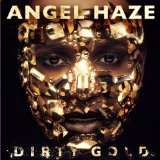 Angel Haze is an exciting prospect. The 22 year old rapper and sometimes singer from Detroit’s flow is like an exhilarating and effortless amphetamine hit; you hear her, you sit up and you ask ‘who?’ Her story is one of cult religions, abuse and an exploration of her sexuality and sexual orientation and how all of these things have resolutely not made her into a victim. After several mix tapes it was 2012’s unexpectedly diverse and brilliant “Reservation” and her covers EP “Classick”, both exploring all of these experiences, that guaranteed she could no longer go unheard. Her biggest hit to date, the skeletal and booming “New York” has now become a club essential and a classic in itself. So why exactly does “Dirty Gold”, Angel Haze’s first official album release sound like such a step backwards?
Angel Haze is an exciting prospect. The 22 year old rapper and sometimes singer from Detroit’s flow is like an exhilarating and effortless amphetamine hit; you hear her, you sit up and you ask ‘who?’ Her story is one of cult religions, abuse and an exploration of her sexuality and sexual orientation and how all of these things have resolutely not made her into a victim. After several mix tapes it was 2012’s unexpectedly diverse and brilliant “Reservation” and her covers EP “Classick”, both exploring all of these experiences, that guaranteed she could no longer go unheard. Her biggest hit to date, the skeletal and booming “New York” has now become a club essential and a classic in itself. So why exactly does “Dirty Gold”, Angel Haze’s first official album release sound like such a step backwards?
It may take a while to pull your already-established fan base along with you, but the decision to move from the relatively underground to the mainstream is not necessarily bad. It’s apparent after hearing the opening track, the scene-setting “Sing About Me” that Angel Haze wants to make it big as a crossover act; not as a rap artist or a hip-hop artist but as a pop star. Listening to recent interviews and the snippets of dialogue contained through “Dirty Gold” this indeed would appear to be Haze’s choice. Beginning with a sung chorus, shimmering synths and a repetitive R2D2 whistle, “Sing About Me”, is uplifting and pleasant but completely derivative r’n’b pop. With sing-song rapped verses, Haze encourages us to celebrate her success and this formula of sung chorus and rapped verse is repeated almost throughout the entirety of the tracks on “Dirty Gold”. On the third song, “A Tribe Called Red”, a trapped-out and dub-stepped rhythm supports Haze’s rap spit efficiently enough but then is completely compromised and crushed by the excruciatingly heavy-handed (sung) chorus telling the listener ‘Don’t give up…turn it around’. It already sounds dated; the EDM ticks, the histrionics and the self-empowering sentiment.
As if any further confirmation were required, the presence of omnipresent songwriter and pop star in her right, Sia, both singing and writing on “Battle Cry” (the hands in the air chorus actually states ‘lift your hands towards the sky’) and with production by equally in-demand Greg Kurstin (Kylie, Britney and Lily Allen), there is no doubt that Haze is aiming stadium big. But even with such dependable collaborators the overall sound of this is overwrought and clichéd, particularly in the slower and more ‘serious’ second half. The most obvious comparison is that of Nicki Minaj who, like Haze, released early mix tapes and through thunder-stealing features proved herself as a gloriously eccentric, genuinely witty and charismatic performer and then her debut “Pink Friday” appeared and it was sonically safe, overly sentimental and, worst of all, dull. The Minaj that was initially promised was not the Minaj delivered and the Angel Haze that we expected has similarly been mislaid somewhere in transit.
There are moments of “Dirty Gold” that do work well within this new format. The first single taken from the album, the Markus Dravs-produced (Bjork, Arcade Fire and Coldplay, amongst others) “Echelon (It’s My Way)” sounds fresh and relevant. It has the best chorus on “Dirty Gold” by some distance and its trap styling and deceptively shallow subject matter (fashion, basically) are pretty perfunctory – it’s pretty much the second instalment to ASAP Rocky’s “Fashion Killa” – but on an album that is looking for instant pop gratification and perfect hooks this does the trick very well. “Deep Sea Diver” has a tight groove and throbs and rattles like prime time Missy Elliott and “White Lilies/White Lies” has breadth and an epic feel that moves away from the more predictable structures found here with the spaghetti western-type loop and long instrumental fadeout adding atmosphere.
It’s maybe important to point out that the deluxe version of this album, and I am loath to review these ‘versions’, which are essentially just marketing tools and undoubtedly cynical, contains four of the most compelling, sonically-challenging and vibrant tracks contained under the “Dirty Gold” banner. Admittedly one of these is the previously-released “New York”, but listen to the baroque and oddly beautiful “Rose-Tinted Suicide” and marvel at what could (should) have been achieved. The decision to still include these tracks, albeit in this unabridged version of the album, confirms that the young star’s talent is still very much intact. It might be of course that Angel Haze herself wants to distance herself from these more nuanced and disturbing tracks but one can only hope that she changes her mind and finds again the bright light that’s hidden beneath the dirt here, the one that attracted us to her in the first place. The three-star rating is based on the Deluxe Edition.
 I saw Bird to Beast live for the first time in November 2013 supporting Black Casino and the Ghost at The Finsbury in north London and they were excellent, performing stripped-back arrangements of their album material to an enthusiastic audience. The single “Elephant” is the second release from Bird to Beast’s debut album, following “To Lips from Lungs” in September 2013.
I saw Bird to Beast live for the first time in November 2013 supporting Black Casino and the Ghost at The Finsbury in north London and they were excellent, performing stripped-back arrangements of their album material to an enthusiastic audience. The single “Elephant” is the second release from Bird to Beast’s debut album, following “To Lips from Lungs” in September 2013.
“Elephant” is a joyously over-the-top mixture of vocal stylings from the 50s and 60s (the intro could be the Andrews Sisters or an arrangement from “Glee”) and a production which Joe Meek would have been proud of. The first two verses feature Sam Hird’s high tenor vocals set against Hannah Hird’s beautiful harmony backing vocals before moving into a middle eight (ok, middle sixteen) built around 60s organ(Farfisa rather than Hammond) arpeggios. The outro is a series of choruses with a couple of upwards modulations building up to a proper ending (no fade-out copout here).
This single is melodic, nostalgic, packed with ideas and is just great fun. I can’t think of anything better to start the year with; you really should give it a listen.
Physical release January 13, 2014.


